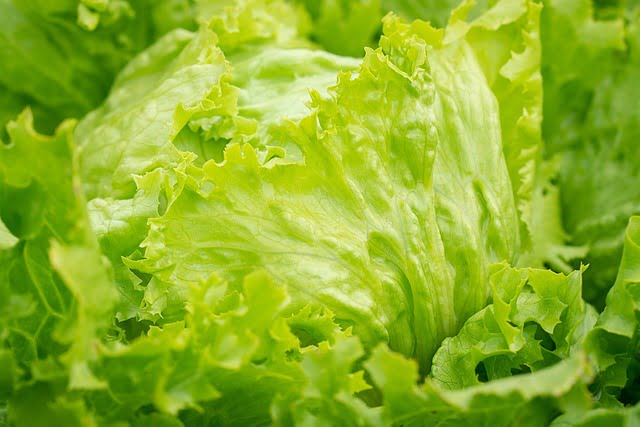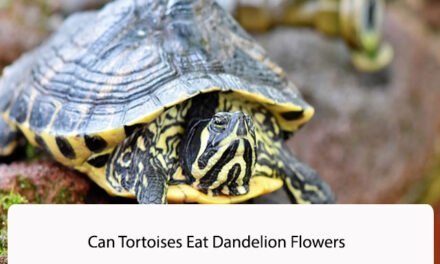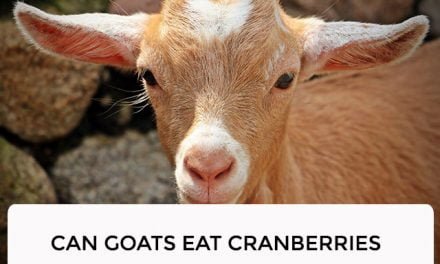Tortoises are herbivores and require a diet that is high in fiber and low in protein. However, not all vegetables are suitable for tortoises. One common question that tortoise owners ask is whether or not their pets can eat iceberg lettuce.
Iceberg lettuce is a popular vegetable that is commonly used in salads and sandwiches. While it may seem like a healthy choice for humans, it is not the best option for tortoises. In fact, iceberg lettuce has very little nutritional value and can even be harmful to tortoises if consumed in large quantities.
As responsible pet owners, it is important to understand what foods are safe and healthy for our pets. In this article, we will explore whether or not tortoises can eat iceberg lettuce and provide some alternative options that are better suited for their dietary needs.

Understanding Tortoise Diet
When it comes to feeding tortoises, it is essential to understand their dietary requirements. Tortoises are herbivores, and their diet should consist of a variety of vegetables, fruits, and plants. A well-balanced diet is crucial to ensure that your tortoise stays healthy and thrives.
Here are some key points to keep in mind when feeding your tortoise:
- Variety is key: Offer a variety of vegetables and fruits to ensure that your tortoise is getting all the necessary nutrients. A diet based solely on one type of food can lead to deficiencies and health problems.
- Avoid high-fat foods: Tortoises are not designed to digest high-fat foods like meat, dairy, and fatty treats. These foods can cause digestive problems and lead to obesity.
- Calcium and phosphorus balance: Tortoises need a balance of calcium and phosphorus in their diet to maintain healthy bones and shell growth. Leafy greens like kale, collard greens, and dandelion greens are excellent sources of calcium.
- Limit fruit: While fruit can be a healthy addition to a tortoise’s diet, it should be fed in moderation. Fruits are high in sugar and can lead to weight gain and other health problems if overfed.
- No iceberg lettuce: Iceberg lettuce has a high water content and lacks the necessary nutrients that tortoises need. It can also cause diarrhea and other digestive problems.
By following these guidelines and providing a well-balanced diet, you can ensure that your tortoise stays healthy and happy.
Can Tortoises Eat Iceberg Lettuce?
Nutritional Value of Iceberg Lettuce
Iceberg lettuce is a popular type of lettuce that is widely available and often used in salads. It is a low calorie and low-fat vegetable that is rich in water and fiber. However, it is not a particularly nutrient-dense food and does not provide a significant amount of vitamins or minerals.
In terms of macronutrients, iceberg lettuce contains approximately 95% water, 3% carbohydrates, and less than 1% of both protein and fat. It also contains small amounts of fiber, calcium, potassium, and vitamin C.
Potential Risks of Iceberg Lettuce
While iceberg lettuce is not toxic to tortoises, it is not the most nutritious food for them either. In fact, it can be harmful if fed in excess. This is because iceberg lettuce contains a high amount of water and a low amount of nutrients, which can lead to diarrhea and dehydration in tortoises if consumed in large quantities.
Additionally, iceberg lettuce contains a high amount of phosphorus and a low amount of calcium, which can cause an imbalance in the tortoise’s diet. This can lead to metabolic bone disease, a serious condition that can cause deformities and even death.
Therefore, while tortoises can eat small amounts of iceberg lettuce as a treat, it should not be a staple part of their diet. Instead, they should be fed a variety of nutrient-dense foods, such as dark leafy greens, vegetables, and fruits, to ensure that they receive all the necessary vitamins and minerals for optimal health.

Alternatives to Iceberg Lettuce for Tortoises
While iceberg lettuce is a popular food for tortoises, it is not the most nutritious option available. Here are some alternatives that can provide a more balanced diet for your pet.
Leafy Greens
Leafy greens are a great source of vitamins and minerals for tortoises. Some options include:
- Romaine lettuce
- Kale
- Collard greens
- Mustard greens
- Turnip greens
- Endive
- Escarole
Make sure to vary the types of greens you offer your tortoise to provide a diverse diet.
Vegetables
In addition to leafy greens, vegetables can also be a good addition to a tortoise’s diet. Some options include:
- Carrots
- Squash
- Zucchini
- Bell peppers
- Cucumber
- Broccoli
- Cauliflower
Remember to chop these vegetables into small pieces to make them easier to eat.
Fruits
While fruits should be given in moderation due to their high sugar content, they can still be a tasty treat for your tortoise. Some options include:
- Strawberries
- Blueberries
- Apples
- Pears
- Mango
- Papaya
- Watermelon
Make sure to remove any seeds or pits before feeding fruits to your tortoise.
In conclusion, while iceberg lettuce can be given to tortoises, there are many other options available that can provide a more balanced diet. By offering a variety of leafy greens, vegetables, and fruits, you can ensure that your pet is getting all the nutrients they need to stay healthy.
Feeding Guidelines for Tortoises
When it comes to feeding tortoises, it is important to provide them with a well-balanced diet that meets their nutritional needs. In this section, we will discuss some general feeding guidelines for tortoises.
Variety is Key
Tortoises require a variety of foods to ensure they receive all the essential nutrients they need. A diet consisting of only one or two types of food can lead to nutritional deficiencies and health problems. Therefore, we recommend providing your tortoise with a variety of vegetables, fruits, and even some occasional protein.
Vegetables
Vegetables should make up the bulk of your tortoise’s diet. Some good options include dark leafy greens like kale, collard greens, and dandelion greens. Other vegetables like carrots, squash, and bell peppers can also be included in their diet.
Fruits
While fruits should be given in moderation, they can be a good source of vitamins and minerals. Some good options include strawberries, blueberries, and melons.
Protein
Tortoises are herbivores, but they can benefit from some occasional protein. This can be provided in the form of insects like crickets or mealworms, or even boiled eggs.
Avoid Toxic Foods
There are some foods that are toxic to tortoises and should be avoided. These include avocado, rhubarb, and chocolate.
Iceberg Lettuce
While iceberg lettuce is not toxic to tortoises, it is not the best option to include in their diet. It has a high water content and lacks the necessary nutrients that tortoises need. Instead, opt for dark leafy greens like kale or collard greens.
By following these general feeding guidelines, you can ensure that your tortoise receives the nutrition they need to stay healthy and happy.

Conclusion
Based on our research, we have found that iceberg lettuce is not the ideal food for tortoises. While it is not toxic, it lacks the necessary nutrients that tortoises require to maintain a healthy diet.
Tortoises require a diet that is high in fiber, calcium, and other essential nutrients. Iceberg lettuce is low in nutritional value and can even cause digestive problems for tortoises if consumed in large quantities.
It is important to note that while iceberg lettuce should not be a staple food for tortoises, it can be given as an occasional treat in small amounts. However, we recommend providing your tortoise with a variety of leafy greens, vegetables, and fruits to ensure they receive a balanced diet.
In summary, while iceberg lettuce may be a tempting option for tortoise owners, it is not a suitable food for their long-term health and well-being.
Frequently Asked Questions
What vegetables can tortoises safely eat?
Tortoises can safely eat a variety of vegetables, including collard greens, dandelion greens, mustard greens, and turnip greens. They can also eat vegetables like carrots, squash, and sweet potatoes in moderation. It is important to avoid feeding them vegetables that are high in oxalic acid, such as spinach and beet greens.
What fruits are safe for tortoises to eat?
Tortoises can safely eat a variety of fruits, including apples, bananas, berries, and melons. However, fruits should be given in moderation due to their high sugar content.
Can rabbits eat iceberg lettuce?
Yes, rabbits can eat iceberg lettuce, but it should be given in moderation. Iceberg lettuce has a high water content and lacks the nutritional value that other leafy greens provide.
Can tortoises eat kale?
Yes, tortoises can eat kale in moderation. Kale is a nutritious leafy green that is high in calcium and other vitamins.
What kind of lettuce can tortoises eat?
Tortoises can eat a variety of lettuces, including romaine, red leaf, and green leaf lettuce. However, iceberg lettuce should be avoided due to its low nutritional value.
Is iceberg lettuce bad for sulcata tortoises?
Iceberg lettuce is not necessarily bad for sulcata tortoises, but it lacks the nutritional value that other leafy greens provide. Sulcata tortoises require a diet that is high in fiber and calcium, and iceberg lettuce does not meet these requirements. It is best to feed them a variety of leafy greens and vegetables to ensure they are getting the proper nutrition.




